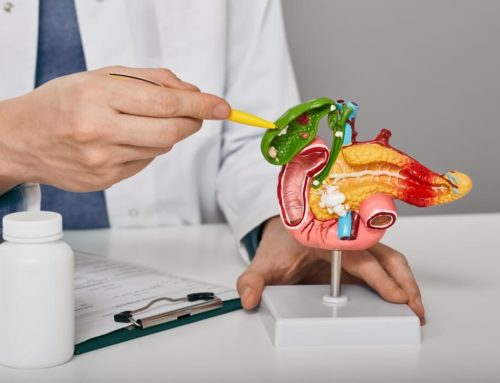Biliary dyskinesia is a condition that affects the proper functioning of the gallbladder, leading to various symptoms and discomfort. Understanding this condition is crucial for individuals experiencing related symptoms and seeking appropriate treatment. In this article, we will explore biliary dyskinesia in detail, including its causes, treatment options, effects on the body, the possibility of improvement, and the best diet for managing the condition.
A comprehensive understanding of biliary dyskinesia allows individuals to make informed decisions about their health and seek medical assistance. By addressing the questions and concerns surrounding this condition, we aim to provide valuable insights to help readers navigate their journey toward better health and well-being. Don’t hesitate to seek gallbladder treatment in Palm Beach County if you, too, are affected by this condition.
What Is Biliary Dyskinesia?

Biliary dyskinesia is a medical condition characterized by abnormal gallbladder function, specifically the impaired movement, and contraction of the gallbladder muscles. The gallbladder, a pear-shaped organ situated below the liver, is essential for fat digestion because it secretes bile into the small intestine. However, in cases of biliary dyskinesia, the gallbladder fails to contract efficiently, leading to disruptions in the normal flow of bile.
This dysfunction in gallbladder movement can result in various digestive issues and discomfort for affected individuals. While the exact cause of biliary dyskinesia remains unclear, it is often associated with a dysfunction in the coordination between the gallbladder muscles and the nervous system that regulates its contractions. This can lead to inadequate emptying of bile, causing symptoms and complications.
Individuals with symptoms of biliary dyskinesia may experience abdominal pain, bloating, nausea, and vomiting, particularly after consuming fatty meals. These symptoms can vary in severity and frequency, impacting the overall quality of life for those affected. It is essential to consult with a healthcare professional for an accurate diagnosis and appropriate management of the condition.
Addressing biliary dyskinesia requires a comprehensive understanding of its causes, symptoms, and available treatment options. In the following sections, we will delve deeper into these aspects, shedding light on the best approaches for managing this condition and fixing a dysfunctional gallbladder.
Causes of Biliary Dyskinesia
Biliary dyskinesia can arise due to various factors affecting the coordination and functioning of the gallbladder. While the exact causes are not fully understood, several potential contributors have been identified.
One factor often associated with biliary dyskinesia is an abnormal gallbladder ejection fraction (EF). The gallbladder ejection fraction refers to the percentage of bile released from the gallbladder during contraction. A lower ejection fraction indicates inadequate emptying, potentially leading to symptoms of biliary dyskinesia.
The causes of biliary dyskinesia can vary. Some potential factors include:
- Muscle Dysfunction: Abnormalities in the gallbladder muscles can disrupt their coordinated contractions, impairing the gallbladder’s ability to release bile effectively.
- Nervous System Disorders: Issues with the nerves that regulate gallbladder contractions can lead to dyskinesia. Nerve damage or dysfunction can disrupt the proper signals required for coordinated gallbladder movement.
- Hormonal Imbalances: Hormonal fluctuations, particularly in estrogen levels, have been linked to biliary dyskinesia. Changes in hormonal balance can affect gallbladder function and contribute to dyskinesia.
- Gallstones: While biliary dyskinesia can occur independently, it is sometimes associated with gallstones. These small, hardened deposits can obstruct the bile ducts, leading to impaired gallbladder emptying and contributing to dyskinesia.
- Other Medical Conditions: Certain underlying medical conditions, such as gastroesophageal reflux disease (GERD) or irritable bowel syndrome (IBS), have been observed alongside biliary dyskinesia. While the exact relationship is not fully understood, these conditions may share common risk factors or mechanisms.
Understanding the potential causes of biliary dyskinesia allows healthcare professionals to tailor treatment approaches accordingly. It is essential to consult with a healthcare provider for a comprehensive evaluation and accurate diagnosis. They can assess the individual’s medical history, perform diagnostic tests, and determine the most appropriate treatment plan based on the underlying causes and symptoms.
Understanding the Symptoms of Biliary Dyskinesia
Recognizing and understanding the symptoms associated with biliary dyskinesia is essential for early detection, accurate diagnosis, and effective management of the condition. While the symptoms can vary from person to person, several common signs indicate the presence of biliary dyskinesia.
- Abdominal Pain: Individuals with biliary dyskinesia often experience recurring or intermittent pain in the upper right abdomen. The pain may be dull, cramp-like, or sharp and can radiate to the back or right shoulder blade. It is commonly triggered or worsened by consuming fatty meals.
- Bloating and Nausea: Biliary dyskinesia can cause feelings of bloating and discomfort in the upper abdomen. The persistent sensation of fullness may be accompanied by nausea or an unsettled stomach.
- Vomiting: Some individuals with biliary dyskinesia may experience episodes of vomiting, particularly after consuming fatty or rich foods. The vomiting may provide temporary relief from the abdominal discomfort.
- Indigestion and Heartburn: Dysfunctional gallbladder contractions can contribute to indigestion and acid reflux symptoms, including heartburn, regurgitation, and a sour taste in the mouth.
- Changes in Bowel Movements: Biliary dyskinesia may lead to alterations in bowel habits, such as diarrhea or loose stools, particularly after meals. However, some individuals may experience constipation instead.
- Fatigue and General Discomfort: Biliary dyskinesia can cause a sense of overall fatigue and malaise. The persistent discomfort and disruption to normal digestion can lead to reduced energy levels and feelings of unwellness.
It is important to note that the severity and frequency of these symptoms can vary among individuals. Some individuals may experience mild symptoms that intermittently affect their daily lives, while others may have more pronounced and persistent discomfort.
Treatment Options for Biliary Dyskinesia

When it comes to managing biliary dyskinesia, several treatment options are available to address the dysfunctional gallbladder and alleviate associated symptoms. The choice of treatment depends on the severity of symptoms, the impact on daily life, and the underlying causes of the condition.
- Lifestyle Modifications: These may include adopting a healthy and balanced diet, avoiding trigger foods high in fats, and maintaining a regular eating schedule. Regular exercise and stress reduction techniques can also be beneficial.
- Medications: In some cases, medications may be prescribed to manage symptoms and improve gallbladder function. These medications can help regulate gallbladder contractions, reduce pain and inflammation, and alleviate digestive discomfort.
- Surgical Intervention: Surgical treatment may be recommended for individuals with severe symptoms or when conservative measures are ineffective.
- Functional Gallbladder Disorder Evaluation: This evaluation, called a functional gallbladder disorder assessment, involves specialized testing to determine the gallbladder’s ability to contract and empty bile effectively. Based on the results, further treatment strategies can be devised.
It is crucial to consult with a healthcare professional experienced in managing biliary dyskinesia to determine the most suitable treatment approach. They will consider individual factors, including symptoms, medical history, and diagnostic test results, to develop a personalized treatment plan that addresses the functional abnormalities of the gallbladder and provides symptom relief.
Request an appointment at our clinic for expert care. Take control of your health and find relief from biliary dyskinesia. Contact us today!





